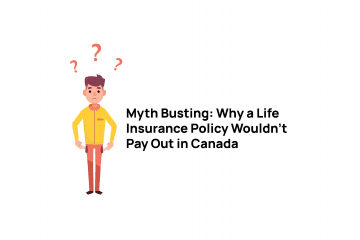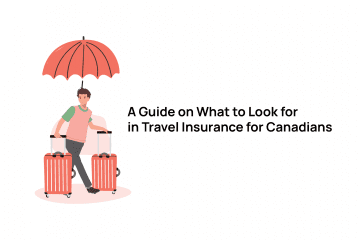As much as we like to complain about it, most Canadians deep down inside understand that at its core we have a pretty great health care system. Sure, there are faults in it, but overall the publicly funded health care available to Canadians makes a huge difference in our lives. Thank Tommy Douglas the next time you don’t have to worry about how you are going to pay for the bill for a trip to the doctor. The universal health care system in Canada provides a huge benefit in the overall financial security for all Canadians. As most people know, our health care system varies a great deal from those around the world. In particular, our closest neighbor, the United States, has a vastly different system in place where you pay for care, even if it is required on an emergency basis. If you are a Canadian citizen who is traveling outside of the country you really need to consider purchasing travel medical insurance. This will cover you for medical costs that are incurred due to any emergency situations that arise while you are traveling outside of Canada. What are some things you should consider when you are looking at purchasing travel insurance? Let’s take a few minutes to introduce some ideas to you.
We are focussing on coverage for Canadians who are traveling outside of the country.
In This Article:
- Know What you are Applying For Travel Insurance
- But I Have Provincial Medical Insurance. Why would I Need Travel Insurance?
- Aside from Emergency Medical Coverage What do I get?
- Frequently Asked Questions
Know What you are Applying For Travel Insurance
When you are looking for travel insurance, knowing what you are looking for and understanding the policies you are applying for makes all the difference. Do you want a policy that covers you purely for medical emergencies that happen? What about coverage for trip interruptions? Physical losses (i.e. lost luggage)? All of these things are unexpected expenses that carry costs with them. Some of the costs are more extreme than others so you may be comfortable taking on these risks. For example, the cost associated with delayed baggage on a trip may be more minor, in the range of a few hundred dollars. The cost of an unexpected trip to the hospital can be extreme. When I say extreme, I recently saw a claim for an out of country medical bill that was over $130,000. While you may be okay with taking on the risk associated with a few hundred dollars, but not many people like the idea of taking on the risk of over a hundred thousand dollars. Making sure that you understand what you have applied for is essential to avoid a situation where you think that you have coverage but you’re mistaken.

But I Have Provincial Medical Insurance. Why would I Need Travel Insurance?
You need to understand that the provincial medical insurance plan (we’ll use OHIP as an example) offers you very little protection outside of the Province of Ontario. If you rely on OHIP there is some coverage for services including:
- Medical Assessments or Emergency Services
- Outpatient services (X-rays or CT Scans for exemple)
- Inpatient treatment for hospital stays
To use the OHIP coverage you pay for everything up front and then apply for reimbursement. The limits are between $200 and $400 a day for emergency inpatient services or $50 a day for outpatient emergencies. Imagine that you are in Erie Pennsylvania enjoying a day at the outlet malls and you slip and fall. A trip to the ER is required. In Pennsylvania an average ER visit costs $1645 USD. If you are required to be admitted the average per day rate in the US to stay in the hospital is $2883 USD. Note that this is just the cost of staying in the hospital. If someone called an ambulance for you that’s going to run you at least $325 USD, and there’s no OHIP coverage for that bill. So you’re on the hook for at least $2000 USD (which today equates to about $2770 CAD) before you’ve included any treatment costs. And if you’re lucky you get $400 CAD reimbursed from OHIP. This is for something minor. Someone who suffers a heart attack is looking at a bill in excess of $25,000 CAD on average for their hospital stay.
One of the key parts of obtaining travel insurance for a trip outside of Canada is that you need to be covered by one of the provincial health insurance plans. Why is this important? It comes down to cost management. One of the options that will be explored if you require emergency care out of the country is can your condition be stabilized enough to safely transport you back to Canada for further care. This is why you need to be covered by a provincial health insurance plan. They are going to try and get you back into your home province for treatment if they can safely do it.
Get a free quote
Aside from Emergency Medical Coverage What do I get?
We mentioned this earlier but it bears repeating. The primary reason to get travel health insurance is in case you need to receive emergency medical care outside of the country. The financial impact of this could be catastrophic if you don’t have insurance. That being said, the plans come with additional benefits as well so remember that you could get:
- Financial help due to delayed or lost baggage – if you arrive at your destination but your baggage doesn’t it can create an inconvenience for you. How much would you need to spend to replace clothing and toiletries that were in your bag during your trip? Lost or delayed baggage insurance provides you with reimbursement of the expenses you incur due to this (up to predetermined limits) so that the bills for your trip don’t include buying a new bathing suit because all of the ones you packed accidentally got shipped to Alaska by the airline.
- Trip Cancellation or Interruption coverage – This is important coverage to have when you are considering the length of your trip. On the cancellation insurance side, if there is an unexpected illness or death and you need to cancel your trip, this benefit ensures that you aren’t on the hook for the bill anyway because you didn’t allow for enough time for your destination’s cancellation policy. On the interruption side, imagine if you suddenly need to return home, or need to extend your stay because of a medical emergency suffered by a family member. Again these may carry unexpected and potentially large costs, having them covered by an insurance policy provides peace of mind and allows you to focus on areas other than financial concerns.
- Flight and Travel Accident coverage – This will provide you with an added level of insurance against injuries or death that are the result of an accident. It is very similar to accidental death and dismemberment coverage in that the cause needs to fall within the definition of an accident, but again can help offset some heavier financial burdens that may result from the accident.
All of these benefits are available in addition to the emergency medical insurance. This provides you with a strong safety net that will help ensure that if your trip is altered due to an unexpected medical event you are protected.

Frequently Asked Questions about Travel Insurance
Q: Does travel insurance cover pre-existing conditions?
A: This depends on the condition and how it’s been handled. If you have a pre-existing medical condition and it has been controlled and stable without changes in medication in the time leading up to your trip then there is a good chance it will be covered. The main concern you would face would be a newly diagnosed condition or one that hasn’t shown a long track record of stability leading up to the trip.
Q: Does Travel Insurance cover you during pregnancy?
A: There are exclusions that would apply. For example, you aren’t covered for
- routine prenatal care
- complications involving pregnancy or childbirth within 9 weeks of your due date
- A child born during your trip
You may find that arranging travel in the window where these exclusions would apply would be difficult. Airlines sometimes restrict allowing you on board a plane when you are in your third trimester. Basically as you approach your due date the ‘emergency’ and ‘unplanned’ medical events are less likely, travel insurance isn’t designed to pay the expenses of a baby that arrives on schedule while you are on a trip.
Q: How far in advance should I get coverage?
A: You can purchase the coverage right up until you leave for your trip. If the idea of having trip cancellation insurance appeals to you it is often suggested that you take out travel insurance the day that you book the trip to maximize the protection. You can’t get cancellation insurance after an event that alters your trip has occurred.
Q: I’m a snow-bird, how does that affect my travel insurance needs?
A: You need to know how long you are allowed to be out of the country for. Many standard policies will only cover you for a single trip that is up to a maximum of between 30 and 60 days. There are products that are specifically designed for Canadians who are aiming to spend longer than this in warm weather destinations for the winter. Make sure you know how long you are covered for and plan your return home accordingly.
Conclusion
Unexpected medical emergencies while you’re away on a trip aren’t something that you want to think about. We get that. You’re more focussed on enjoying your trip and relaxing. One of the best ways to make sure that you can relax is to not have to worry about what would happen if you needed medical care for an emergency while you are away. Include peace of mind as part of your overall trip plan. Contact the team at LifeInsuranceCanada.com to help you make sure you’re properly protected during your trip.




